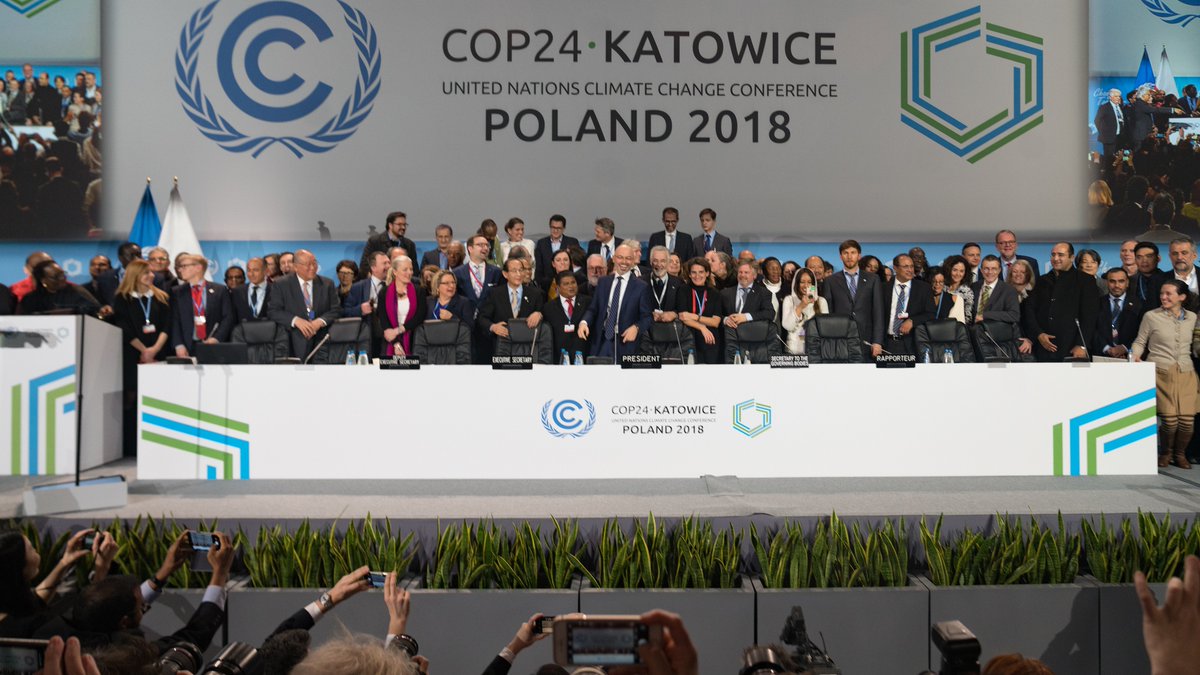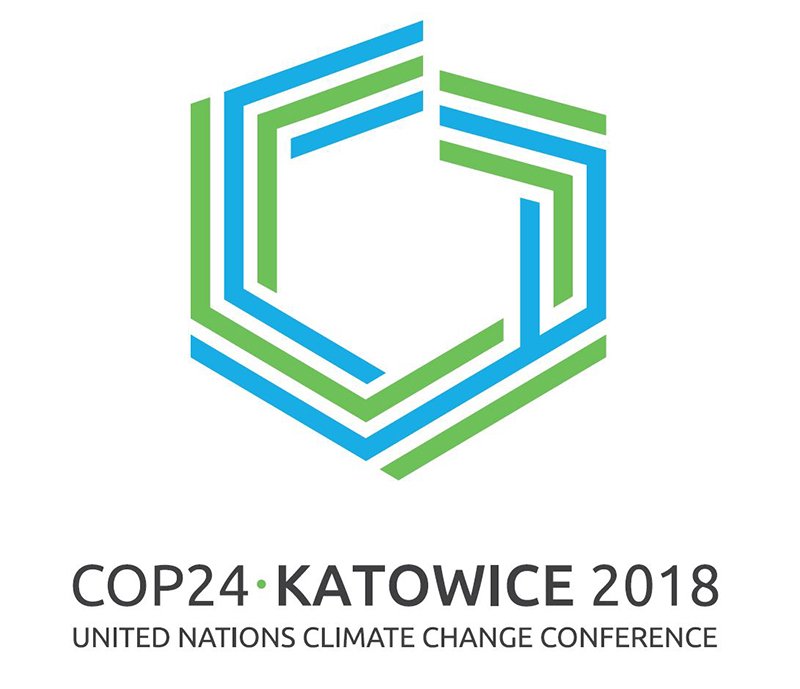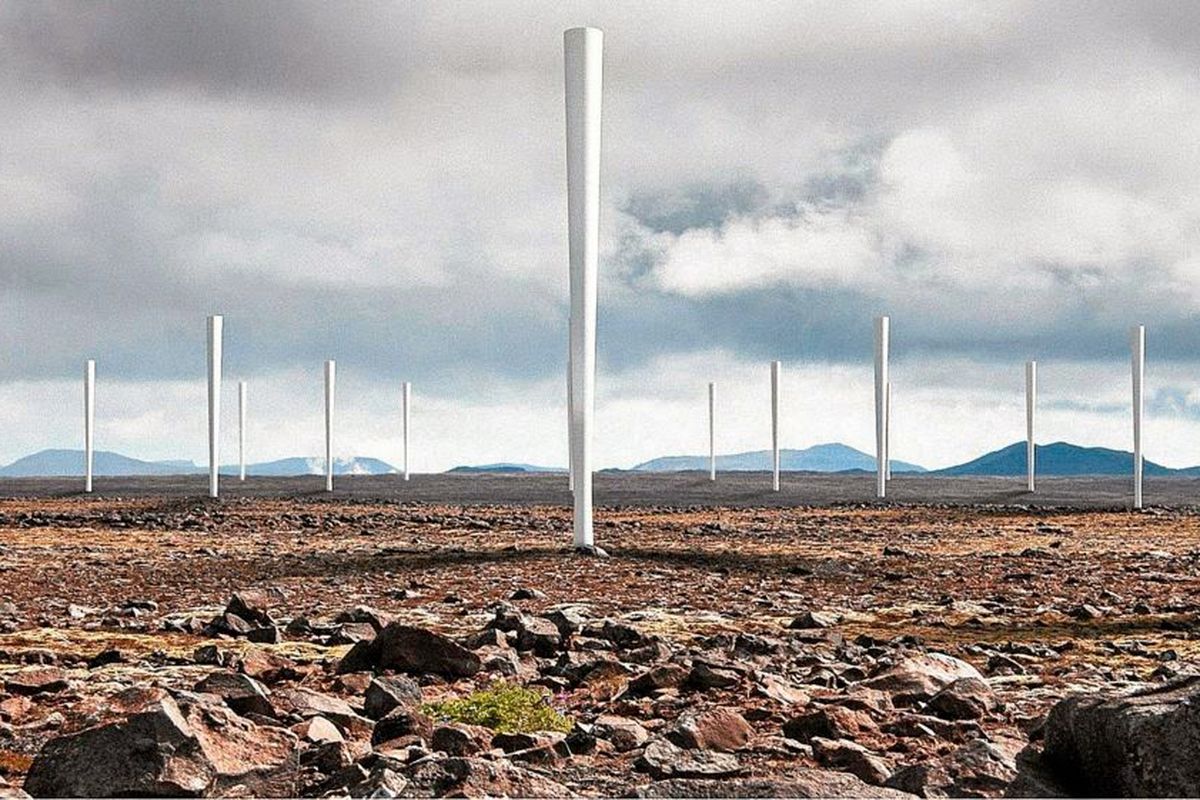COP24 – World climate conference
The COP24 is the world climate conference held in Katowice, Poland between the 2nd and the 5th December 2018.
The acronym “COP24” stands for “Conference of parties” which is the Conference of the signatory countries of the UNFCCC, the Conference of the United Nations on Climate Changes.
It was a fundamental meeting to regulate and limit the emissions that are bringing the well known climate changes. The COP24 in particular was intended to arrange and define the rules to enforce the agreements, that were previously taken in the Paris Conference of 2015.
Brief history and previous agreements
The topics discussed in the COP24 are based on the agreements reached in the “Rio Conference on climate changes”or COP21 held in Paris from 30th November to 12th December 2015. The number 21 is due to the fact that it was the 21st annual session of the UNFCCC Conference since 1992 (it was also called CMP11, being the 11th since the Kyoto Protocol in 1997).
During the conference an agreement was reached on the reduction of the emissions and it had the approval of the 195 parties; in particular, one of the main issues arranged was keeping global warming “well below 2° C”.
For those who want to read the whole Paris agreement, we attach the link for the pdf of a reliable italian translation: Accordi di Parigi 2015
COP24 and its importance
The COP24 was the first climate conference held after the publication in October of the Intergovernmental Panel on Climate Change (IPCC) report, which stated that, in order to limit the increase of temperature to 1.5° C, governments will necessarily have to reduce the greenhouse gas emissions by 45% by the year 2030.
As already happened, the Conference lasted longer than expected, ending with one day late (closure was due to the 14th December, not the 15th); among the main goals achieved we can point out the adoption of the “Katowice Climate Package”, a set of rules aimed to implement the agreements made in Paris in 2015 during COP21.


Was it therefore a success?
The climate supervisor of the United Nations Patricia Espinosa stated that “Now there’s a roadmap with which the international community can decisively face climate change“, but it be emphasized that important world powers such as USA, Saudi Arabia and Russia contested the IPCC report, welcoming its publication but rejecting its conclusions.
Speaking of concrete facts, the agreement was made that all countries will have to provide information on their national contribution to reduce emissions (the so-called NDC or “National Determined Contributions”), but a strict action plan on emissions cuts hasn’t been drawn up yet.
Important positive factors were the registration of the emissions of all countries and the use of the so-called “carbon credits”, rewards given to the countries that will further reduce their own emissions to “balance” those of the other countries. In particular the country that will not reach the reduction objectives will have to purchase these missing credits from the countries that have brought their emissions below the minimum threshold (this way the most vituous countries are rewarded).
An higher tolerance on emissions and fundings for the “conversion” to more sustainable energy sources were granted to developing countries.
The role of the “Super Powers”
Unfortunately, it must be said that great countries that could make a difference don’t seem to have a really positive role: Cina and India supported the cause without taking real measures, while worrying is the position of the USA with President Trump who, as expected, totally reversed the excellent contribution of the USA to the agreements made in Paris 2015 (with President Obama).
In a similar position stand both Russia and Brasil, that has supported the agreements in the recent years but with the new president Jair Bolsonaro, has also withdrawn his country’s offer to host the meetings for the year to come.
Scarce information
The last sore point is, in our opinion, the extremely scarce “publicity” made for this important event. Newspapers, televison news and social media in general, didn’t raise awareness in people, for an event of global relevance that could bring a cleaner, eco-friendly planet for young and future generations, whose lifes will be directly and heavily influenced from the agreements made in these years.
We are not talking about “end of the world” scaremongering, but everybody’s awareness of a glaring problem such as the dangerous increase of temperature due to the excessive CO2 emissions, brought about by our lifestyle in the last 150 years.








